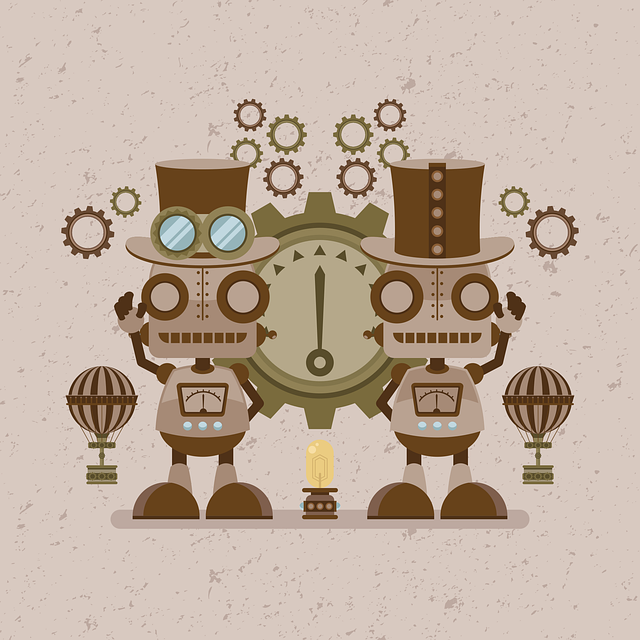Artificial Intelligence in Healthcare: Improving Patient Outcomes

Artificial Intelligence (AI) is revolutionizing the healthcare industry, bringing about significant improvements in patient outcomes. By harnessing the power of advanced algorithms and machine learning, AI has the potential to transform the way healthcare is delivered and experienced.
One key area where AI is making a remarkable impact is in diagnosing diseases. Traditional diagnostic methods often rely on human expertise, which can be prone to errors and delays. However, AI algorithms can analyze vast amounts of medical data with incredible speed and accuracy, helping physicians detect illnesses at an earlier stage and with greater precision. This early detection allows for timely interventions, increasing the chances of successful treatment and improved patient outcomes.
Moreover, AI is enhancing personalized medicine by tailoring treatments to individual patients. Each person’s genetic makeup, lifestyle, and medical history are unique, and AI algorithms can analyze this information to optimize treatment plans. By considering a patient’s specific characteristics, AI can suggest the most effective medication, dosage, and therapy options. This personalized approach minimizes adverse reactions and maximizes the likelihood of positive health outcomes.

Furthermore, AI is improving patient care through remote monitoring and virtual assistants. Wearable devices equipped with AI technology can continuously track vital signs and alert healthcare providers if any abnormalities are detected. This proactive monitoring not only helps prevent emergencies but also enables early intervention, reducing hospital readmissions and improving overall patient well-being.
In surgery, AI-assisted robotic systems are revolutionizing the precision and safety of procedures. Surgeons can now benefit from real-time imaging, augmented reality, and robotic assistance that enhance their abilities and reduce the risk of complications. The result is more accurate surgeries, shorter recovery times, and improved patient outcomes.
Artificial intelligence is ushering in a new era of healthcare with its ability to improve patient outcomes. From diagnosing diseases to personalizing treatments, monitoring patients remotely, and enhancing surgical procedures, AI is transforming the way medicine is practiced. As AI continues to advance, it holds tremendous potential for further breakthroughs, ensuring that patients receive the best care possible. With AI as a trusted ally, the future of healthcare looks brighter than ever before.
Revolutionizing Healthcare: How Artificial Intelligence is Transforming Patient Outcomes
Have you ever wondered how technology is reshaping the world of healthcare? Well, prepare to be amazed because artificial intelligence (AI) is at the forefront of this revolution, transforming patient outcomes in remarkable ways. With its ability to analyze vast amounts of data and learn from it, AI is revolutionizing the healthcare industry, providing personalized care and improving treatment outcomes.

One area where AI is making a significant impact is in diagnostics. Traditional medical diagnosis can be a complex and time-consuming process, but AI-powered systems are changing the game. By analyzing patient data, such as medical images, lab results, and even genetic information, AI algorithms can detect patterns and identify potential health issues with incredible accuracy. This not only speeds up the diagnostic process but also enhances the accuracy of diagnoses, leading to more effective treatments.
Another way AI is transforming patient outcomes is through predictive analytics. By leveraging machine learning algorithms, AI can predict the likelihood of certain diseases or conditions based on a patient’s medical history, lifestyle factors, and other relevant information. This early identification allows healthcare providers to intervene proactively, preventing the progression of diseases and improving patient outcomes. Imagine a future where serious illnesses can be detected before symptoms even manifest, enabling timely interventions and potentially saving lives.
Furthermore, AI is driving advancements in precision medicine. Traditionally, healthcare has followed a one-size-fits-all approach, but with AI, we can now move towards personalized medicine. AI algorithms can analyze an individual’s unique characteristics and genetic makeup to develop tailored treatment plans. This precision approach ensures that patients receive the most effective treatments with fewer side effects, resulting in improved outcomes and increased patient satisfaction.
AI is not only empowering healthcare professionals but also engaging patients in their own care. Virtual health assistants powered by AI can provide patients with real-time guidance and support, answering their questions and providing personalized recommendations. These virtual assistants can monitor vital signs, remind patients to take their medications, and even detect any unusual fluctuations in health parameters. By actively involving patients in their care, AI is empowering them to make informed decisions and take proactive steps towards better health.
Artificial intelligence is revolutionizing healthcare and transforming patient outcomes in unprecedented ways. From speeding up diagnostics to enabling personalized treatments and empowering patients, AI is reshaping the healthcare landscape. As this technology continues to evolve, we can expect even more astonishing breakthroughs that will enhance the quality of care, improve treatment outcomes, and ultimately save lives. The future of healthcare is here, and it’s powered by artificial intelligence.
Unleashing the Power of AI: Enhancing Healthcare with Artificial Intelligence
Imagine a world where cutting-edge technology isn’t just limited to sci-fi movies. A world where machines possess the ability to transform healthcare as we know it. That world is becoming a reality with the remarkable advancements in Artificial Intelligence (AI). In this article, we delve into the awe-inspiring potential of AI and how it is revolutionizing the healthcare industry.
AI has emerged as a game-changer, empowering medical professionals to provide better care and outcomes for patients. One of its prominent applications lies in disease diagnosis. With AI algorithms capable of analyzing vast amounts of medical data, doctors can make more accurate and timely diagnoses. This translates into faster treatment, improved patient satisfaction, and ultimately, enhanced healthcare overall.
Moreover, AI is enabling personalized medicine. Every individual is unique, and so are their healthcare needs. AI algorithms can process patient-specific information, such as genetic makeup and medical history, to generate tailored treatment plans. This targeted approach optimizes the efficacy of treatments, minimizes adverse effects, and maximizes patient well-being.
But AI’s impact doesn’t stop there. It extends to streamlining administrative tasks, enhancing operational efficiency, and reducing costs. Imagine intelligent chatbots that can handle appointment scheduling, freeing up precious time for healthcare providers to focus on direct patient care. AI-powered systems can also analyze hospital workflows, optimizing resource allocation and minimizing bottlenecks.
Furthermore, AI has the potential to transform medical research. By analyzing vast datasets and identifying patterns that elude human observers, AI can accelerate the discovery of new drugs and therapies. This means faster development cycles and improved treatment options for patients around the globe.
However, it’s important to acknowledge the ethical considerations surrounding the use of AI in healthcare. Safeguarding patient privacy, ensuring transparency of algorithms, and addressing biases are critical challenges that need to be addressed. Striking the right balance between human judgment and AI assistance is crucial to prevent over-reliance on machines.

The power of AI in healthcare is truly awe-inspiring. From disease diagnosis to personalized medicine, administrative tasks to medical research, AI is transforming the industry in unimaginable ways. As we embrace this technological revolution, it is important to navigate the ethical complexities carefully. By doing so, we can harness the full potential of AI and usher in a new era of enhanced healthcare for all.
From Sci-Fi to Reality: How Artificial Intelligence is Saving Lives in Healthcare
Artificial intelligence (AI) has revolutionized numerous industries, and its impact on healthcare is truly remarkable. This cutting-edge technology, once confined to the realms of science fiction, now plays a pivotal role in saving lives and transforming the way medical professionals diagnose, treat, and manage diseases.
Imagine a world where early detection of life-threatening conditions becomes routine. With AI, this vision is becoming a reality. Machine learning algorithms have the ability to analyze vast amounts of patient data, identifying patterns that may go unnoticed by human doctors. By scrutinizing medical records, lab results, and imaging scans, AI systems can swiftly flag potential risks and provide timely warnings to healthcare providers. This proactive approach enables doctors to intervene earlier, offering patients better chances of survival and recovery.
Moreover, AI-powered diagnostic tools are streamlining the diagnostic process. Take radiology as an example. AI algorithms can meticulously examine medical images, such as X-rays and MRIs, with incredible precision and speed. They can detect subtle abnormalities that might escape human eyes, enabling radiologists to make more accurate diagnoses. This not only reduces the likelihood of misdiagnosis but also expedites treatment, saving crucial time for patients.
In addition to diagnosis, AI is enhancing treatment plans and personalized medicine. Through advanced algorithms, AI can analyze individual patient characteristics, genetic information, and treatment outcomes. By discerning patterns within this data, AI can suggest tailored treatment options, optimizing therapeutic strategies for each patient’s unique needs. This level of personalization leads to improved patient outcomes and reduced adverse effects.
Another area where AI is making significant strides is drug discovery. The traditional process of developing new medications is lengthy and resource-intensive. However, AI algorithms can rapidly analyze vast databases of chemical compounds, predicting their properties and potential efficacy. By accelerating the identification and screening of promising drug candidates, AI expedites the development of life-saving treatments and brings hope to patients suffering from previously untreatable diseases.
The integration of artificial intelligence into healthcare is a game-changer. From early detection and accurate diagnosis to personalized treatment plans and drug discovery, AI is transforming patient care and saving lives. As this technology continues to advance, we can expect even greater breakthroughs in healthcare, ushering in a future where human and artificial intelligence collaborate to provide optimal care for all.
The Future of Medicine: Artificial Intelligence Redefines Patient Care
The future of medicine holds tremendous potential as Artificial Intelligence (AI) revolutionizes the way patient care is delivered. With AI at the forefront, healthcare providers can harness its power to enhance diagnostics, improve treatment plans, and streamline administrative tasks. This article explores how AI is reshaping the landscape of patient care, paving the way for a more efficient and personalized healthcare experience.
Imagine a world where medical diagnoses are made with unprecedented accuracy. AI algorithms can analyze vast amounts of patient data, including medical records, lab results, and imaging scans, to identify patterns and indicators that may elude human perception. By combining this data with cutting-edge machine learning techniques, AI systems can provide clinicians with invaluable insights, helping them make faster and more informed decisions.

But AI’s impact doesn’t stop at diagnosis. Treatment plans can be tailored to individual patients’ needs, thanks to AI-powered predictive models. These models consider various factors such as genetic information, lifestyle choices, and environmental influences to recommend personalized treatments that yield better outcomes. This level of precision medicine has the potential to transform the way diseases are managed, leading to improved patient outcomes and reduced healthcare costs.
Beyond diagnosis and treatment, AI is also streamlining administrative tasks in healthcare. From appointment scheduling and medical billing to managing electronic health records, AI-powered systems are automating labor-intensive processes, freeing up valuable time for healthcare professionals to focus on direct patient care. This not only increases efficiency but also reduces the chances of errors caused by manual data entry.
The integration of AI into patient care raises important ethical considerations. While AI can significantly augment physicians’ capabilities, it is crucial to strike a balance between technology and human touch. The empathetic and compassionate nature of healthcare cannot be replaced by machines. Instead, AI should be seen as a powerful tool that supports healthcare providers in delivering superior care.

The future of medicine lies in the seamless integration of AI into patient care. By leveraging the power of AI, healthcare providers can enhance diagnostics, personalize treatment plans, and streamline administrative tasks. However, it is important to remember that AI should complement rather than replace human expertise. As AI continues to evolve, the potential for innovation in patient care is boundless, promising a future where healthcare outcomes are optimized, and patient experiences are transformed.




